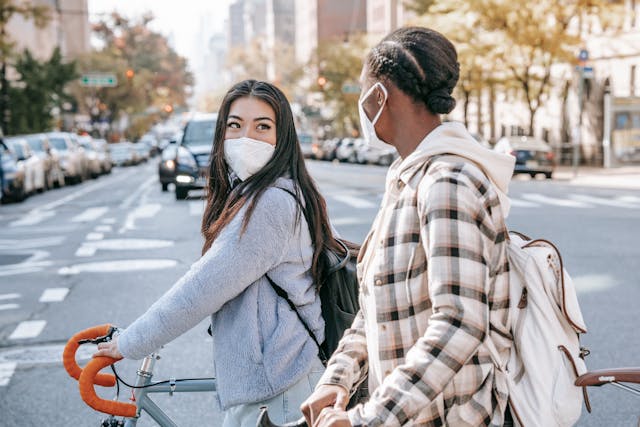All across the globe, concerns are continuously growing when it comes to air pollution and the impact it has on the environment and people’s health. Especially in densely populated areas such as cities and urban spaces, the quality of the air is incredibly poor, and this can have a devastating impact on your physical health. This article will look at air pollution in-depth and some of the medical conditions that are associated with exposure to high levels of air pollutants.
Understanding Air Pollution
The air we breathe can become contaminated by a number of different chemicals, toxins and agents that change the natural characteristics of the atmosphere. The most common sources of air pollutants come from things like burning fossil fuels, carbon emissions from motorised vehicles and industrial facilities.
The pollutants that are of the main concern when it comes to the health of the planet and the people living on it are carbon monoxide, sulphur dioxide, ozone and nitrogen dioxide. Such pollutants in the air can have a serious impact on your health and can cause respiratory diseases and other medical conditions which can sometimes prove to be fatal.
The impact of climate change, which is driven by the burning of fossil fuels and increasing air pollution, is widespread and now many nations are outlining policies and coming up with solutions to tackle air pollution in an effort to try and reverse the damage that is being done to the planet.
How Does Air Pollution Impact Your Health?
Breathing in harmful chemicals from the air, particularly over a long period of time, can have a significant impact on your physical health. Pollutants in the air travel into your airways and can cause a number of symptoms, including coughing, wheezing, feeling short of breath, asthma attacks and chest pain.
In extreme cases, significant exposure to harmful pollutants in the air can put you at risk of serious respiratory diseases, such as lung cancer, heart attacks, strokes and in some rare cases, even death. Chronic obstructive pulmonary disease (COPD) is also linked to being exposed to harmful chemicals in the air.
Some people may be more at risk when it comes to exposure to air pollution and harmful chemicals. Children are more at risk than adults as their lungs have yet to fully develop, which means that they are more susceptible to the impact of poor air quality. Furthermore, ingesting such harmful toxins at a young age can lead to respiratory conditions in the future, such as asthma.
Older people are also more at risk, especially if they already have long-term medical conditions which affect their lungs.
